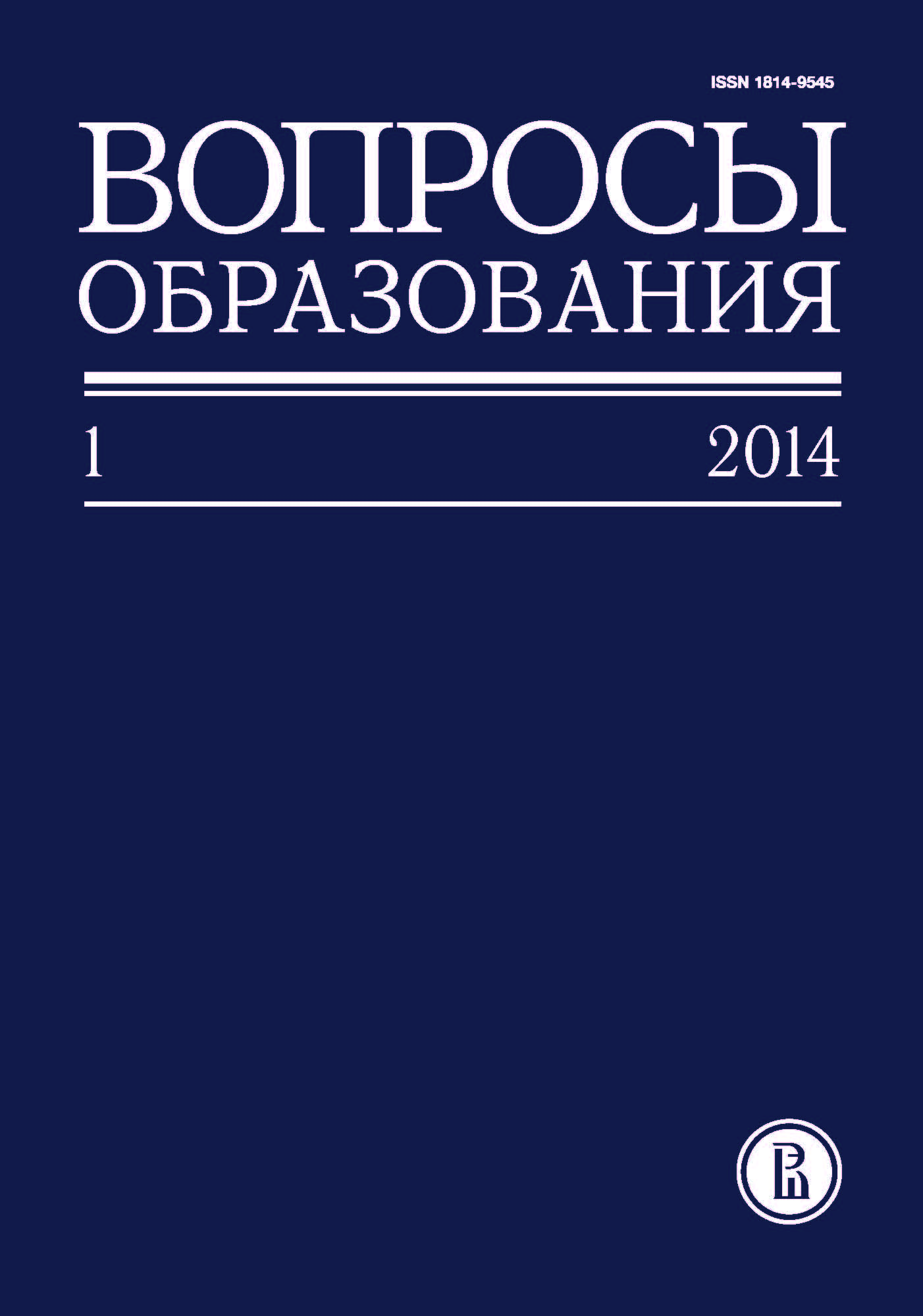Schoolchildren’s Expectations from Their First Employment
Abstract
The paper analyzes the expectations Russian 9th graders have about their first employment: when they are going to start working, whether they believe that work should first of all be highly paid or find self-realization in work more important, etc. The empirical basis is the first phase of the longitudinal studies initiated by NRU HSE in 2010 as part of the project ‘Monitoring educational and employment trajectories of school and higher education institution graduates’. The survey involved 9th grade students who took the TIMSS-2011 international test in 2010–2011 (3,797 students from 41 regions of Russia) and their parents. Logistic regression is used to build models where the dependable variable is school children’s expectations about their future employment and the independent variable is groups of factors accounting for family background, cultural capital and personality traits of respondents. Family characteristics turned out to determine students’ expectations much less than personality traits, especially the self-assessment level. Besides, parental preferences about their children’s future employment have no impact on students’ opinion. The author suggests that the following phase of the study should be used to evaluate realization of schoolchildren’s predictions about when they were going to start working and whether they were going to continue their school education, as well as to assess the changes in the value systems held by students and their parents in forming their expectations.









